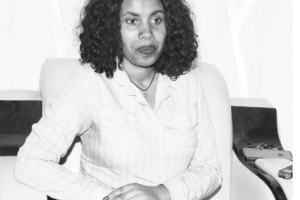
The Common Market for Eastern and Southern Africa (COMESA) conducted a workshop, recently, on gender equality and available career opportunities for women in the aviation sector where it made a call to regional aviation actors to mainstream gender equality in their tasks.
Paramount Business Jets (PBJ) shared in its website that the representation of women in the aviation industry starkly contrasts their participation in the general workforce and STEM fields where it specifically portrayed, women to account for less than 20% of the overall workforce in aviation.
It stated that the disparity becomes even more pronounced in specialized roles, with women comprising only five percent of airline pilots and a mere 3.6% of airline captains. The figures highlight not only the underrepresentation of women in aviation but also the significant room for growth and the potential benefits of increasing diversity within the industry and suggested more targeted efforts are needed to bridge the gender gap.
Representing Solomon Asfaw, Advisor to the State Minister of Women and Social Affairs, Sileshi Tadesse, at the workshop mentioned that despite the fact that gender equality is the basic human right which enshrined in the universal declaration of human rights, achieving gender equality and empowering women and girls continued to be global and cross-sectoral challenge.
Gender equality is recognized as prerequisite to realizing sustainable development and integrated across the goals and targets of 2030 agenda, he said, adding that goals and targets of agenda 2063 expects countries to put an end to all forms of violence and discrimination against women and girls and enable full enjoyment of human right, especially the right to quality education in the field of STEM to ensure that they take their rightful place in the aviation industry.
“Currently not enough priority is placed on STEM in school and I am happy to note that part of this awareness raising program is being extended to girls in schools with the aim of enlightening with the available careers in the aviation sector.
He went on: Women and girls in the STEM field are creators, entrepreneurs, innovators and leaders globally. However, the percentage of women amongst STEM graduates is below 50% in over two third of countries. While girls outperform in terms of reading skill in most state, women remain to be underrepresented amongst top performers in STEM subjects as well as in the STEM workforce.
Hence, he underlined that gender equality needs enforceable plan, policies at all levels of the aviation industry to promote the inclusiveness and empowerment of women and girls as a means of narrowing persistent gender gaps.
As to him, civil aviation authorities and the Ministry of Transport, with the help of other offices such as the ministries of Justice, Education and Labor, has the potential to model influential institutions enabling women to participate and lead especially in decision making and leadership positions.
Moreover, there need to be gender disaggregated data to assess gender equality which is fundamental to policy making, decision making as well as promoting training and skill development, he added.
He also highlighted the need to put in place inclusive and transparent human resource policies including gender responsive recruitment and selection procedure such as recruitment target, promotion, gender training for recruitment managers and targeted outreach to women, gender responsive evaluation process and creating a safe respectful harassment free working environment for all.
The Representative further noted that Ethiopia has done a lot in the progress of women empowerment in government and non-government sectors through gender mainstreaming. “Ethiopian aviation sector is one of the sectors that structure gender directorate in the organization so as to mainstream gender and empower women where we can observe the result of having women pilots and technical staff who are becoming role model for girls at early stage.”
Nonetheless, the aviation industry is experiencing rapid growth fueled with increased number of passengers, expansion of cargo operations, and continued innovation in the field of digitalization. Urban air mobility, unmanned aircraft systems and sustainable aviation fuel, the industry will face a significant challenge in the growing demand for skill workers, said Tadesse.
Recent reports indicate that the aviation sector will require over a million new professionals in the coming years to meet the industry expanding needs. Evidently, this growth outplays the rate at which new professionals are entering the industry leading to an imbalance in supply and demand. Many experienced professionals are nearing retirement age creating a void that needs to be filled with new generation of skilled workers.
The African continent has over 52% of the female population but has less than 5 percent in the aviation sector. Therefore, there is ample room to ensure that imbalance in the supply and demand is filled in the coming years. Thus, the workshop has immense benefit for Ethiopia, he underlined.
COMESA Gender and Social Affairs Director General Hamusonde Beatrice Simwapenga, on her part mentioned that gender in aviation is very critical which should be considered in all sectors.
She stressed that the aviation industry is one of those sectors that mainstreaming gender and also the participation of women in all categories of the jobs that the aviation sector offers should be enhanced.
“Most of the time you find women predominantly as cabin crew in the aircraft or the grounds where passengers check in but in the other roles that the aviation sector has, women are not well represented.”
Thus, the aim is to ensure and promote the participation of women in all departments of the aviation department. “We have seen recently some progress in terms of women in a pilot which is commendable. For example, the Ethiopian Airlines, there are times where they just have a crew composed of women only but we want to see that actually better as we move forward since gender mainstreaming is critical.”
It would also give confidence for the younger generation that is still in school that they should aspire to take various responsibilities, career opportunities in the aviation sector, she stressed.
COMESA has different initiatives supporting and promoting women’s active participation in the aviation sector. The workshop in Addis Ababa is one of the efforts towards promoting the participation of women in the aviation sector.
She said it aimed at ensuring the landscape continues to change so that there is strong mainstreaming of gender in the aviation sector.
“When we talk about gender mainstreaming, we talk more about women because they are the ones that are lagging behind in most of these industries. But, there are areas where men are not well represented as well like in flight attendants. We also want to see men coming forward and serving the passengers. There should be balance. Since nature balances, we should also balance.”
As COMESA is a regional organization, the commitment that countries make at the regional level, they are expected to implement. The Project that it runs supports gender mainstreaming in the aviation sector, it is a program that member states have committed to. Thus, policy makers, decision makers, all actors including media are expected to ensure that they send out the message to people and sensitize the young people that there are many opportunities that exist in the aviation sector which they can look up to .
It also expects decision makers, since they have committed to promote gender mainstreaming in the sector at national, regional and global level, to be active and ensure the expected changes happens, she added.
The Ministry of Women and Social Affairs Women’s Empowerment Chief Executive Officer Ashenafi Feyissa also stressed that gender parity in the aviation industry requires consolidated efforts of penitent actors.
The call to action underscores the necessity of creating more opportunity for women across all areas of the industry, from piloting and engineering to leadership and decision-making roles. Women empowerment in the aviation sector is not just a matter of equity; it is also about harnessing the full potential of human resources to drive innovation and excellence, Ashenafi remarked.
BY BETELHEM BEDLU
THE ETHIOPIAN HERALD THURSDAY 27 JUNE 2024





